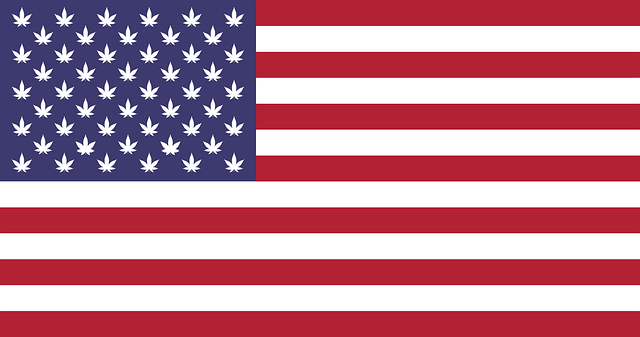The THCA flower, a non-psychoactive compound found in raw cannabis plants, is gaining recognition for its potential health benefits, including anti-inflammatory, neuroprotective, and analgesic effects. Unlike its counterpart THC, which becomes active after heating, THCA remains inert and offers these benefits without mind-altering side effects. To safely harness the advantages of THCA flower, it's essential to follow specific dosage guidelines tailored to individual factors like weight, tolerance, and health conditions. These guidelines encourage a conservative starting point, with adjustments made based on personal reactions and experiences. The quality of THCA products is vital, with high-quality, lab-tested flowers ensuring safety and efficacy. As research continues to unveil THCA's properties, maintaining proper dosage protocols remains key to unlocking its full potential for therapeutic use. Users are advised to consult healthcare professionals when incorporating THCA flower into their wellness routine, especially if they have existing health concerns or take other medications. Ensuring the sourcing of organic, sustainable-grown THCA flowers and verifying lab test results is also crucial for maximizing benefits and ensuring product purity. Adherence to these practices helps in experiencing the full spectrum of THCA's potential wellness applications.
Discover the natural prowess of THCA flowers, a non-psychoactive cannabinoid that’s garnering attention for its array of potential health benefits. This article delves into the multifaceted advantages of THCA, from its therapeutic properties to its role in skincare and anti-aging, and provides clear thca flower dosage guidelines for first-time users. We explore its science, comparing it to other cannabinoids, and elucidate how proper sourcing and storage can maintain its potency. With insights on consumption methods, integrating THCA into a holistic health routine, and the entourage effect, this comprehensive guide offers a well-rounded look at the promising potential of THCA flowers in various aspects of wellness, balanced with safety considerations and practical dosing advice.
- Unveiling THCA Flower and Its Natural Benefits
- The Science Behind THCA Flower: Potential Health Advantages
- THCA Flower vs. Other Cannabinoids: A Comparative Analysis
- Understanding the Entourage Effect and THCA's Role in It
- Sourcing Quality THCA Flowers: Key Factors to Consider
Unveiling THCA Flower and Its Natural Benefits
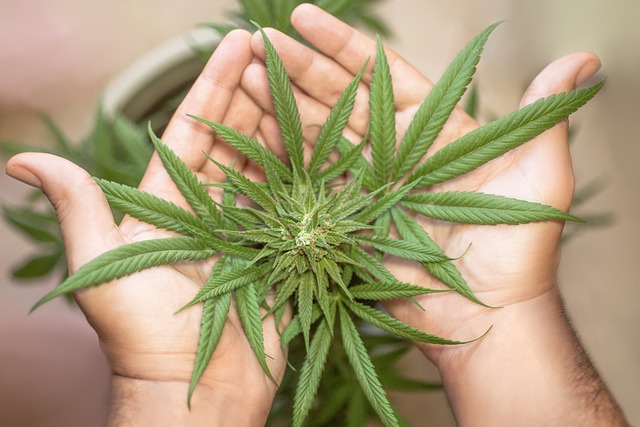
THCA flower, which contains tetrahydrocannabinolic acid, a non-psychoactive precursor to THC, has garnered attention for its potential health benefits. This natural compound is found in high concentrations in raw cannabis plants and offers a wide range of therapeutic properties without the psychoactive effects associated with THC. Research suggests that THCA may have anti-inflammatory, neuroprotective, and antiemetic qualities, making it a subject of interest for various conditions. Users interested in exploring the benefits of THCA flower should follow dosage guidelines to optimize its effects and ensure safety. Typical dosage recommendations vary based on individual factors like body weight, tolerance, and the specific condition being addressed. It’s advisable to start with a low dose and gradually increase it as needed while closely monitoring personal responses. The natural benefits of THCA flower are under active investigation, but preliminary findings are promising for those seeking alternatives to traditional medications for pain management, reducing inflammation, and alleviating symptoms associated with various neurological disorders. As research continues, understanding the correct dosage is crucial for harnessing the full potential of this cannabinoid.
The Science Behind THCA Flower: Potential Health Advantages
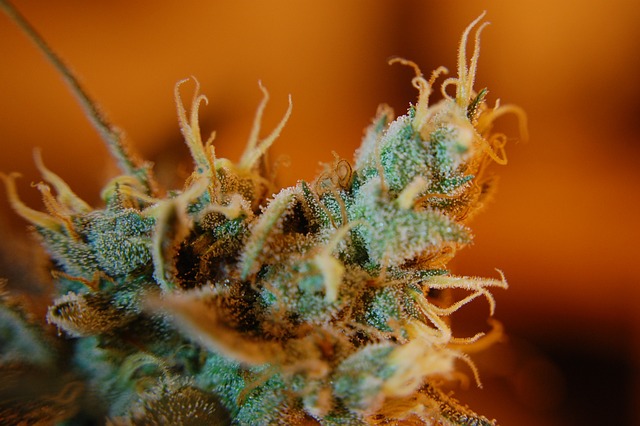
Delta-9-tetrahydrocannabinol (THC) is the well-known psychoactive component of cannabis, but its raw form known as tetrahydrocannabinolic acid (THCA) has garnered attention for its potential health advantages. THCA is the precursor to THC and exists naturally in raw cannabis flowers. Emerging research suggests that THCA may offer a spectrum of therapeutic properties without the psychoactive effects typically associated with THC. Studies have indicated that THCA could exhibit anti-inflammatory, anti-nausea, anti-emetic (anti-vomiting), and neuroprotective qualities. These benefits are thought to stem from its interaction with the body’s endocannabinoid system, which plays a crucial role in regulating various physiological processes.
Given the potential health advantages of THCA flower, understanding proper dosage guidelines is paramount for safe and effective use. Dosage can vary greatly depending on individual factors such as body weight, tolerance, and the specific condition being addressed. It is advisable to start with a low dose to gauge effects before gradually increasing the dosage. Consumers should also consider the extraction method used in preparing THCA products, as this can affect the concentration of THCA present. Additionally, it’s important for users to procure high-quality, laboratory-tested THCA flowers to ensure safety and efficacy. Adhering to dosage guidelines and consulting with healthcare professionals when integrating THCA flower into one’s health regimen will help maximize its potential benefits while minimizing risks.
THCA Flower vs. Other Cannabinoids: A Comparative Analysis
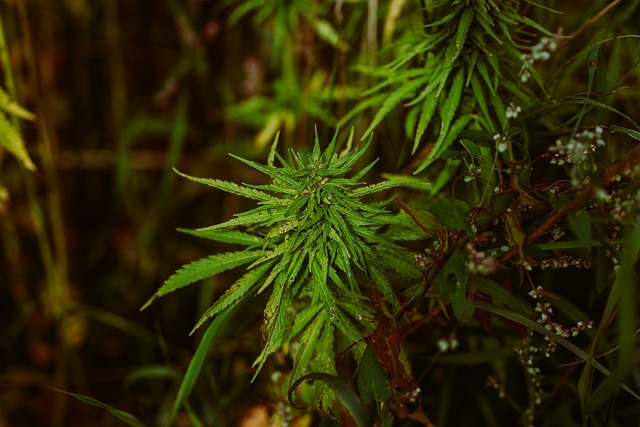
THCA flower, or tetrahydrocannabinolic acid, is a non-psychoactive cannabinoid found in raw cannabis plants that has garnered attention for its potential health benefits. Unlike its well-known counterpart, THC (tetrahydrocannabinol), THCA remains inert and non-intoxicating until it is heated, which converts it into THC. This conversion happens during the decarboxylation process that occurs when cannabis is smoked or vaporized. THCA flower dosage guidelines are essential for users to experience its benefits without exceeding its safe consumption levels.
When comparing THCA flower with other cannabinoids like CBD (cannabidiol) and CBN (cannabinol), each exhibits distinct properties and effects. For instance, CBD is renowned for its therapeutic qualities, including anxiety relief and anti-inflammatory effects, without the psychoactive impact. On the other hand, CBN, often considered a byproduct of THC degradation, has been shown to have sedative properties. Dosage guidelines for these cannabinoids differ based on individual needs, desired effects, and product forms. THCA flower, specifically, is being studied for its potential anti-inflammatory and neuroprotective effects, with users typically starting with lower doses to assess their sensitivity and gradually increasing as needed. Users should always consult with a healthcare professional or a knowledgeable dispensary staff member before incorporating THCA flower into their wellness routine, to ensure proper dosing and to understand its interactions with other medications or conditions.
Understanding the Entourage Effect and THCA's Role in It
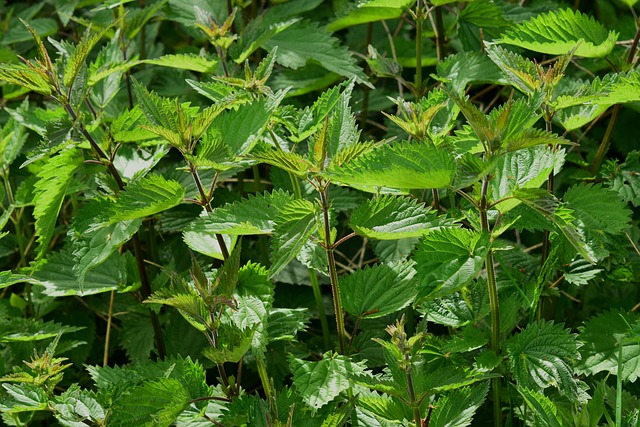
THCA, or tetrahydrocannabinolic acid, is a non-psychoactive cannabinoid found in raw cannabis plants and flowers, which, when exposed to heat, degrades into THC, the primary psychoactive component of cannabis. The Entourage Effect refers to the synergistic interaction between different cannabinoids, terpenes, and flavonoids within the cannabis plant, which can influence the effects felt by a consumer. THCA plays a significant role in this complex interplay. Understanding its role is crucial for those interested in utilizing the full potential of cannabis’s therapeutic benefits without the psychoactive high that comes with its decarboxylated form, THC.
Research suggests that THCA may offer a range of wellness benefits, including anti-inflammatory, neuroprotective, and analgesic properties. However, to fully harness these potential benefits, it’s important to adhere to THCA flower dosage guidelines. These guidelines help ensure a safe and consistent experience. Typically, dosage recommendations are based on an individual’s body weight, tolerance, and the specific effects desired. It’s advisable to start with a low dose and gradually increase it as needed while monitoring effects. As with any supplement or medication, it’s recommended to consult with a healthcare professional before incorporating THCA flowers into one’s wellness routine, especially if combining with other medications or for individuals with pre-existing health conditions.
Sourcing Quality THCA Flowers: Key Factors to Consider
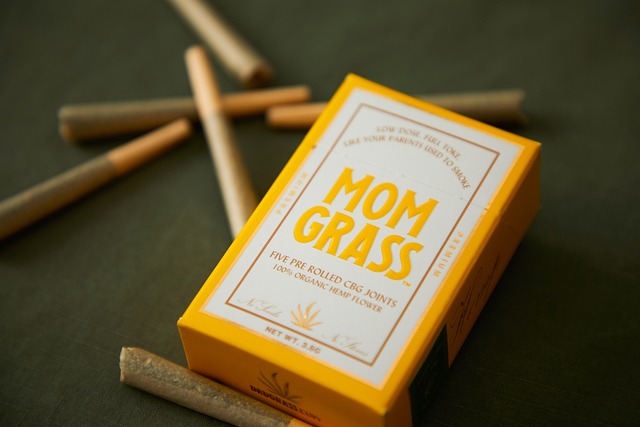
When exploring the potential benefits of THCA flowers, the first critical step is sourcing high-quality products. Quality THCA flowers are a prized commodity for those interested in the therapeutic and wellness properties associated with cannabinoids. To ensure you’re obtaining potent and pure THCA flowers, it’s essential to consider several key factors during the sourcing process.
Premium THCA flowers should be grown using organic farming practices to avoid harmful chemicals and pesticides. The cultivation environment plays a significant role in the quality of the flower; therefore, opt for products from reputable farms that prioritize sustainable growing conditions. Additionally, the THCA flower dosage guidelines must be adhered to for optimal effects and safety. Dosage can vary based on individual body chemistry, tolerance, and the specific health concerns being addressed. Consult with a healthcare professional or refer to product-specific dosing instructions to navigate appropriate usage. Verifying the lab test results of your THCA flowers is another non-negotiable step; these tests confirm both the cannabinoid potency and the absence of contaminants, ensuring a safe and effective product. By focusing on these sourcing considerations, you can confidently incorporate THCA flowers into your wellness regimen, potentially harnessing their numerous benefits.
In conclusion, the exploration of THCA flower’s potential benefits presents a compelling case for its inclusion in wellness routines. The scientific evidence suggests that THCA may offer various health advantages distinct from those of its cannabinoid counterparts, emphasizing the importance of understanding the entourage effect and how THCA contributes to it. When considering incorporating THCA flower into one’s regimen, adhering to thca flower dosage guidelines is paramount for optimal effects and safety. Prospective users should prioritize sourcing high-quality THCA flowers by focusing on reputable suppliers who guarantee purity and potency. With careful selection and mindful dosing, the natural benefits of THCA flower can be fully realized, making it a noteworthy addition to the landscape of holistic health practices.
